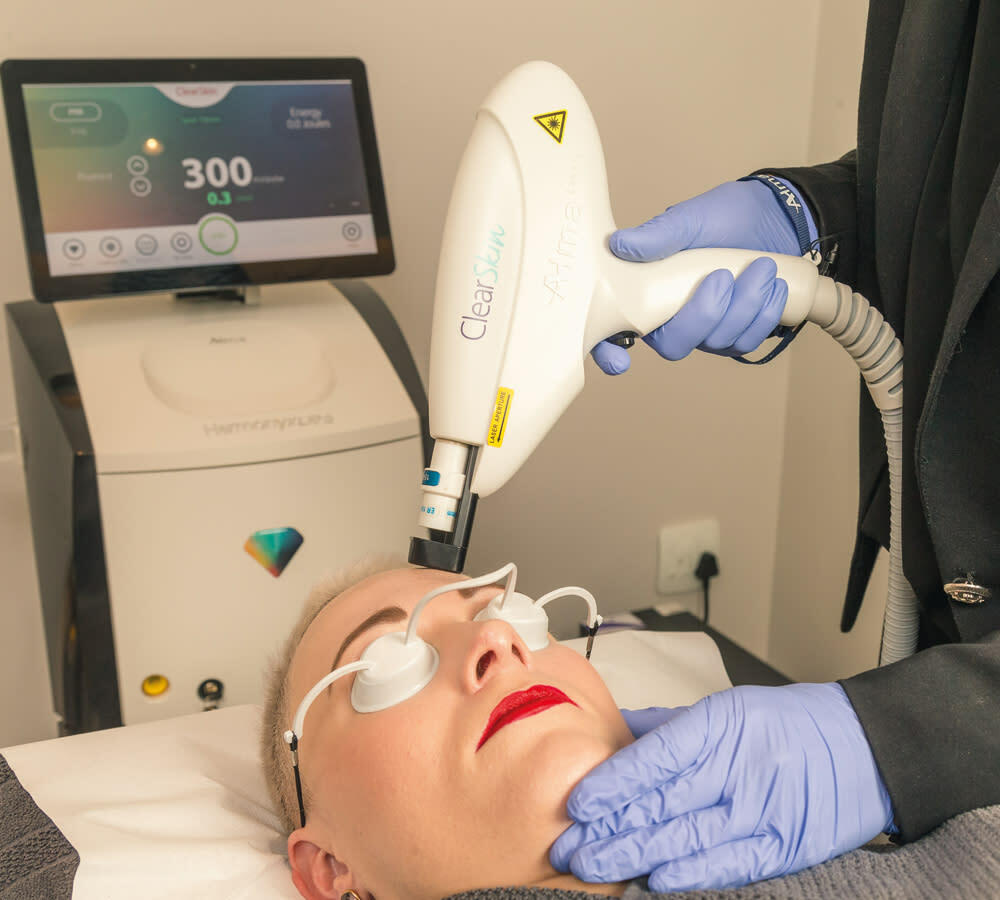Acne is a common skin condition that affects millions of people worldwide, often leaving lasting scars and impacting self-esteem. In recent years, advancements in dermatological technology have significantly enhanced the efficacy and safety of acne treatments. Among these innovations, laser therapy has emerged as a leading solution, offering targeted and effective treatment options. This article explores the latest advancements in laser acne treatment, highlighting new technologies, techniques, and their potential impact on acne management.
Understanding Laser Acne Treatment
Laser Acne Treatment Dubai leverages the precision of laser technology to target acne-causing factors directly. The principle behind laser therapy is to use focused light beams to penetrate the skin and address the underlying causes of acne. Unlike traditional methods, which might involve topical treatments or systemic medications, laser treatments offer a more direct approach to managing acne and its effects.
Innovations in Laser Technology
Fractional Laser Systems
One of the most notable advancements in laser acne treatment is the development of fractional laser systems. These systems work by delivering laser light in a fractional pattern, creating micro-injuries in the skin. This process stimulates the body's natural healing response, leading to the regeneration of healthy skin and reduction in acne scars. Fractional lasers are highly effective in treating both active acne and post-acne scarring, offering a dual benefit for patients.

Pulsed Dye Lasers
Pulsed dye lasers represent another significant advancement in laser acne treatment. These lasers target the blood vessels within acne lesions, reducing inflammation and redness. By focusing on the vascular components of acne, pulsed dye lasers help in minimizing the appearance of active acne and improving overall skin tone. This technology is particularly beneficial for individuals with inflammatory acne and those who experience redness or swelling.
Non-Ablative Lasers
Non-ablative lasers, such as the Nd
laser, have revolutionized acne treatment by providing a less invasive option compared to traditional ablative lasers. Non-ablative lasers work by heating the deeper layers of the skin without causing damage to the surface. This stimulates collagen production and improves skin texture, making it an excellent choice for treating acne scars and improving overall skin appearance with minimal downtime.
Enhancements in Treatment Techniques
Combination Therapy
Recent advancements also include the use of combination therapies, where laser treatments are combined with other modalities such as chemical peels or microneedling. This multifaceted approach enhances the overall effectiveness of acne treatment by addressing different aspects of acne simultaneously. For instance, combining fractional lasers with chemical peels can improve skin texture and reduce pigmentation more effectively than either treatment alone.
Customization of Treatment Protocols
Another significant advancement is the increased ability to customize treatment protocols based on individual patient needs. Advances in technology allow dermatologists to tailor laser settings and treatment plans according to the patient's skin type, acne severity, and specific concerns. This personalized approach ensures that each patient receives the most effective treatment for their unique condition, leading to better outcomes and reduced risk of side effects.
Clinical Research and Outcomes
Enhanced Efficacy
Clinical research has demonstrated that the latest laser technologies offer enhanced efficacy in treating acne and its residual scars. Studies have shown that fractional lasers, for example, can significantly improve skin texture and reduce acne scarring with fewer sessions compared to older methods. This improved efficacy translates to faster results and a more satisfactory experience for patients.
Reduced Side Effects
Advancements in laser technology have also led to a reduction in side effects associated with acne treatment. Newer lasers are designed to be less aggressive on the skin, minimizing the risk of complications such as hyperpigmentation or prolonged redness. The development of non-ablative lasers, in particular, has contributed to a lower incidence of downtime and post-treatment discomfort.
Future Directions in Laser Acne Treatment
Integration of Artificial Intelligence
The integration of artificial intelligence (AI) into laser acne treatment is a promising direction for future advancements. AI algorithms can analyze skin conditions with high precision, enabling more accurate targeting and treatment customization. This technology has the potential to further enhance the effectiveness of laser therapies and streamline the treatment process for both patients and practitioners.
Emerging Laser Technologies
Ongoing research continues to explore new laser technologies and methodologies that could offer even more effective solutions for acne treatment. Innovations such as multipurpose lasers that combine various wavelengths and functionalities are being developed to address multiple aspects of acne simultaneously. These emerging technologies hold the promise of further improving treatment outcomes and expanding options for patients.
Conclusion
The landscape of acne treatment has evolved significantly with the advent of advanced laser technologies. From fractional lasers and pulsed dye lasers to non-ablative options and combination therapies, the latest advancements offer more precise, effective, and customized solutions for managing acne and its effects. As research continues and new technologies emerge, the future of laser acne treatment looks promising, with the potential for even greater innovations and improved patient outcomes.
